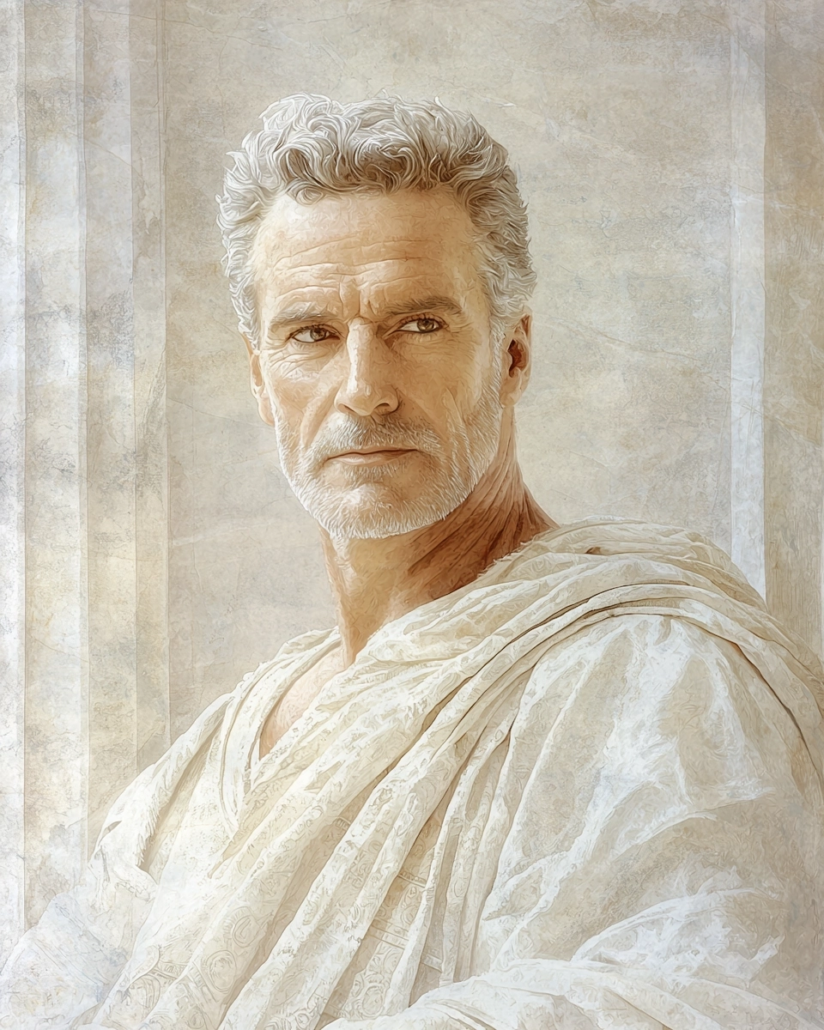Cicero: The Power of the Mind and Stoic Wisdom 💡
The Power of Philosophy
Cicero (106–43 BCE), the renowned Roman statesman and orator, is celebrated not only for his eloquence but also for integrating Stoic thought into his works. While not strictly a Stoic, this philosopher drew heavily on Stoic principles, emphasizing virtues such as justice, wisdom, courage, and moderation in personal and public life. Through his writings, he bridged Greek Stoicism and Roman ethics, making Stoic philosophy accessible to a broader audience in Rome.
Historical Context and Influence
Educated in Greece, this thinker was influenced by prominent Stoics, including Panaetius of Rhodes and Posidonius of Apamea. Although he maintained a skeptical outlook, his writings like De Officiis (“On Duties”) reveal how Stoic thought shaped his understanding of ethics and duty. His emphasis on public duty and moral integrity found in Stoicism a natural ally, especially during Rome’s turbulent political periods. Deepen: Britannica
Why Are His Teachings and Views So Valuable?
The philosopher’s Stoic-inspired teachings resonate today, especially his insights on personal responsibility and civic duty. This ethical framework offers a timeless guide to achieving inner resilience and a balanced life, even in challenging times. Stoic influence in his work provides a roadmap for maintaining integrity and peace of mind in a complex world. Read more: Modern Stoic Principles in Everyday Life
Key Teachings
Cicero championed the Stoic ideals of moral integrity and public duty. He argued that true happiness stems from fulfilling one’s moral obligations and placing public good above self-interest. These values shaped his idea of “nobility” in politics—a commitment to serving justice and truth above power or wealth. Through his philosophy, Stoic principles like self-control and civic virtue gained new prominence. Deepen: IEP
Legacy
- “Cicero inspired not only his contemporaries but also later philosophers like Saint Augustine, John Locke, and the American Founding Fathers.”
- “His views on moral integrity and civic responsibility helped shape Enlightenment ideas.”
- “By synthesizing Stoic and Roman ideals, he has impacted political philosophy and ethical thought worldwide.”
Cardinal Virtues Embodied by the Philosopher
- Justice – Valued fairness and pursued truth over personal gain.
- Wisdom – Emphasized understanding and rational judgment as essential for ethical decisions.
- Courage – Demonstrated bravery in defending his beliefs and Rome’s republican ideals.
- Temperance – Advocated for balance and moderation, aligning with the Stoic ideal of self-mastery.
Quotes attributed to him
- “The welfare of the people is the ultimate law.”
- “To be ignorant of what occurred before you were born is to remain always a child.”
- “Virtue is a habit of the mind, consistent with nature and moderation and reason.”


